Abstract
Estimating nonlinear properties such as Rényi entropies and observable-weighted moments serves as a central strategy for spectrum spectroscopy, which is fundamental to property prediction and analysis in quantum information science, statistical mechanics, and many-body physics. However, existing approaches are susceptible to noise and require significant resources, making them challenging for near-term quantum hardware. In this work, we introduce a framework for resource-efficient simultaneous estimation of quantum state moments via qubit reuse. For an -qubit quantum state , our method achieves the simultaneous estimation of the full hierarchy of moments , as well as arbitrary polynomial functionals and their observable-weighted counterparts. By leveraging qubit reset operations, our core circuit for simultaneous moment estimation requires only physical qubits and CSWAP gates, achieving a near-optimal sample complexity of . We demonstrate this protocol's utility by showing that the estimated moments yield tight bounds on a state's maximum eigenvalue and present applications in quantum virtual cooling to access low-energy states of the Heisenberg model. Furthermore, we show the protocol's viability on near-term quantum hardware by experimentally measuring higher-order Rényi entropy on a superconducting quantum processor. Our method provides a scalable and resource-efficient route to quantum system characterization and spectroscopy on near-term quantum hardware.
Publication
arXiv:2509.24842
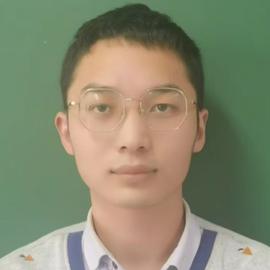
Research Associate
I obtained my BS in Software Engineering from Beijing information science and technology university under the supervision of Prof. Xiulei Liu. I obtained my PhD degree in Computer Software and Theory from University of Chinese Academy of Sciences under the supervision of Prof. Yun Shang. My research interests include tensor network and variational quantum algorithms.
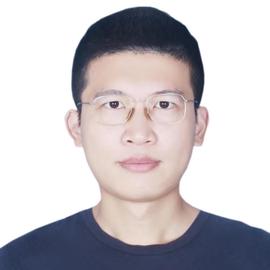
Research Assistant
I obtained my BS in Applied Mathematics from New York University, Shanghai. I am about to obtain my MS degree in Statistics from Fudan University under the supervision of Prof. Meiyue Shao. My research interests include quantum computing, quantum information and artificial intelligence.
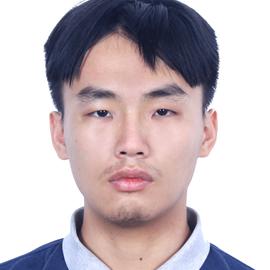
PhD Student (2024)
I obtained my BS in Computer Science from Sun Yat-sen University under the supervision of Prof. Yanghui Rao. I obtained my MS degree in Computer Science from Sun Yat-sen University under the supervision of Prof. Lvzhou Li. My research interests include quantum computation and quantum architecture.
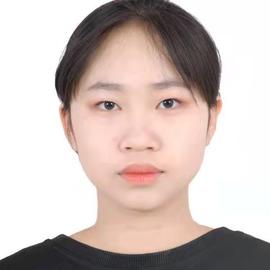
Research Assistant
I am currently studying in Mathematics and Applied Mathematics from Harbin Institute of Technology. My research interests include quantum information theory, quantum computation, and applied mathematics.
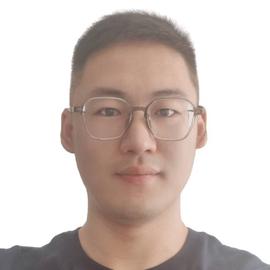
PhD Student (2024)
I obtained my BS degree in Mathematics from Nanjing University of Aeronautics and Astronautics and my MS degree in Mathematics from Beihang University. My research interests include quantum information theory and quantum machine learning.
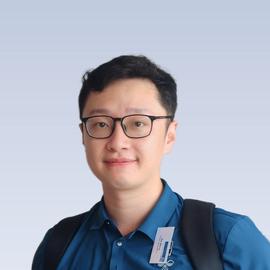
Associate Professor
Prof. Xin Wang founded the QuAIR lab at HKUST(Guangzhou) in June 2023. His research primarily focuses on better understanding the limits of information processing with quantum systems and the power of quantum artificial intelligence. Prior to establishing the QuAIR lab, Prof. Wang was a Staff Researcher at the Institute for Quantum Computing at Baidu Research, where he concentrated on quantum computing research and the development of the Baidu Quantum Platform. Notably, he spearheaded the development of Paddle Quantum, a Python library designed for quantum machine learning. From 2018 to 2019, Prof. Wang held the position of Hartree Postdoctoral Fellow at the Joint Center for Quantum Information and Computer Science (QuICS) at the University of Maryland, College Park. He earned his doctorate in quantum information from the University of Technology Sydney in 2018, under the guidance of Prof. Runyao Duan and Prof. Andreas Winter. In 2014, Prof. Wang obtained his B.S. in mathematics (with Wu Yuzhang Honor) from Sichuan University.
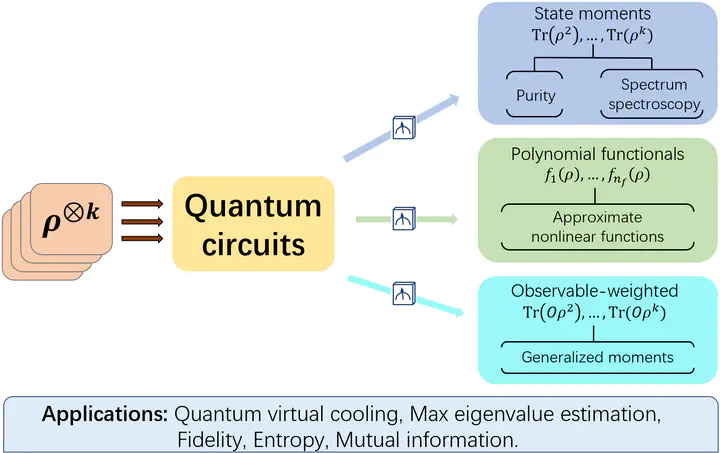 Sketches of simultaneous estimation
Sketches of simultaneous estimation